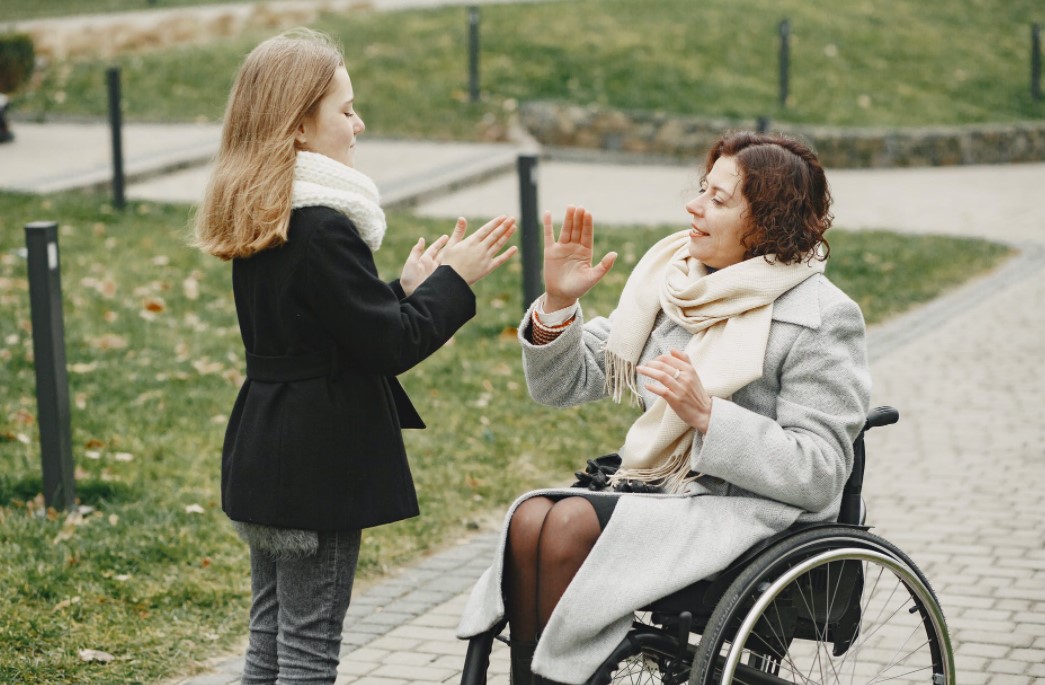People in need of nursing care support used to have little choice in where to live besides moving into a care home or staying in their own homes, even if these environments were increasingly unsuitable.
In contrast to care homes, extra care housing has been welcomed since it allows people to remain independent while gaining access to additional support without giving up the freedom that they fear will happen should they move into a care home. From retirement villages to apartments, these schemes have grown over time.
The views of older people living in such schemes have been explored in several studies. An extensive review of 19 extra care housing schemes in Australia found that most residents reported a high standard of living. The costs were comparable or less than if they had moved into a care facility.
Due to disabilities at birth or from an accident or traumatic experience, an individual’s quality of life, confidence, and independence can significantly improve when receiving the highest at-home care.
Australia’s leading provider of home care services is Advance Care. Those who need assistance can rely on us to provide it. Our at-home caregivers will provide the highest quality care from our at-home caregivers because they are trained to do so.
The following are some advantages of at-home care for individuals with disabilities:
Table of Contents
ToggleAdults with disabilities receive comprehensive services
Many people with disabilities can choose from a wide range of care options, but most prefer home-based care because it allows them to maintain their health and happiness at home.
Nursing care agencies and assisted living facilities cannot typically provide customized care, which is necessary when caring for adults with different disabilities and lifestyle preferences. Advance Care offers home care services, Service Coordination and Managed Care that is customized to meet the unique needs of its clients.
Family members enjoy an improved quality of life
Caregiving family members who are currently caring for individuals with disabilities can benefit from home care services. Caregivers can help reduce the workload at home, but they can also support adults with disabilities.
Reducing stress leads to a happier family in our home, who can enjoy each other’s company instead of stressing about what needs to be done next.
Gaining Self-Reliance and Confidence
Individuals with disabilities can gain confidence with the help of at-home care services.
In addition to maintaining an individual’s health, nursing homes and assisted living facilities often struggle to be a source of satisfaction and independence for their residents. Adults with disabilities who receive at-home care can build their self-esteem by tackling daily tasks with their caregivers together. Gaining confidence can result in a better quality of life.
Providing services that are tailored to meet individual needs
Individuals with disabilities may face various circumstances that may require different coping mechanisms daily. Patients and their family members benefit from home care services if provided with care options customized to meet their needs.
Advance Care is the premier provider, providing quality home care services across Australia. Additionally, Advance Care offers skilled nursing home care to seniors and individuals with disabilities. The Advance Care team is dedicated to providing high-quality care to meet the needs of our community’s most vulnerable populations.
Quick advice for nursing adults with disabilities
Disability Awareness Month occurs in March. It is difficult to handle everyday needs, caregiving, and personal matters for someone with a disability, regardless of their age.
Professional caregivers can help adults with chronic needs or disabilities live independently and keep their stress levels down by providing home care services.
We offer Advance Care services to support families with autistic and developmental disabilities such as Down’s Syndrome, Cerebral Palsy, and intellectual disabilities. Based on their work with these local families, they have found the following caring tips to be very helpful to you and your disabled family member.
Prepare yourself by educating yourself
Obtain as much information about the family member as possible. To learn about their current situation and what to expect in the future, they should meet with their health advisors and specialists. As you become more informed, you will be able to make more informed health decisions and be better prepared to confront any challenges your family may face.
Become a better supporter
Families and friends can offer support in many ways and often want to help but are unsure how. You should let them know what you need and how they can assist you.
- Join a local or online support group that matches the needs and interests of both you and the disabled loved one. Taking part in a support group can allow you to exchange information and connect with other people experiencing the same thing. As a caregiver, you may feel isolated and fearful. A support group may alleviate these feelings.
- Look for groups that provide services, recreation, and information for people with disabilities in your community and around the country.
- Make a family care team by asking your friends, family, health care providers, and counsellors for help.
Self-care is vital
Being a caregiver can be stressful. It can be gratifying and challenging to care for a family member with a disability. You must stay in good health for yourself and those under your care.
- Consider taking a short walk, reading a book, or taking a nap.
- Provide companion or personal care to your loved ones daily or weekly with the help of an in-home caregiver, like Advance Care. Meal preparation, transportation, housekeeping, and hygiene assistance are our core services.
- Become familiar with the term “respite care.” Get away for a few days so you can recharge.
- Make sure you’re in good physical and mental health.
- Make sure you eat right and exercise.
- Have fun with your friends and family.
In the care of a loved one who lives with a disability, families play an essential role. They can remain in their own home if you provide quality care. An added service offered by a non-medical home care provider can significantly improve the quality of life for differently able family members and let them fully grow and experience life.
Special Needs Nursing for Adults with Disabilities
The likelihood is that you will be able to find a home that offers convenient access for regular visits inside Australia since there are hundreds of special needs homes for adults.
The Blacktown and Seven Hills nursing home for adults with disabilities is the premier setting for individuals with special needs. The state-of-the-art facilities at Blacktown and Seven Hills are explicitly designed with special needs in mind, providing a wealth of activities, amenities, and opportunities to develop intellectually and emotionally for its residents.
We invite you to Advance Care to learn more about our Blacktown and Seven Hill accommodation and experience the comforts of a warm and inviting community for yourself.





